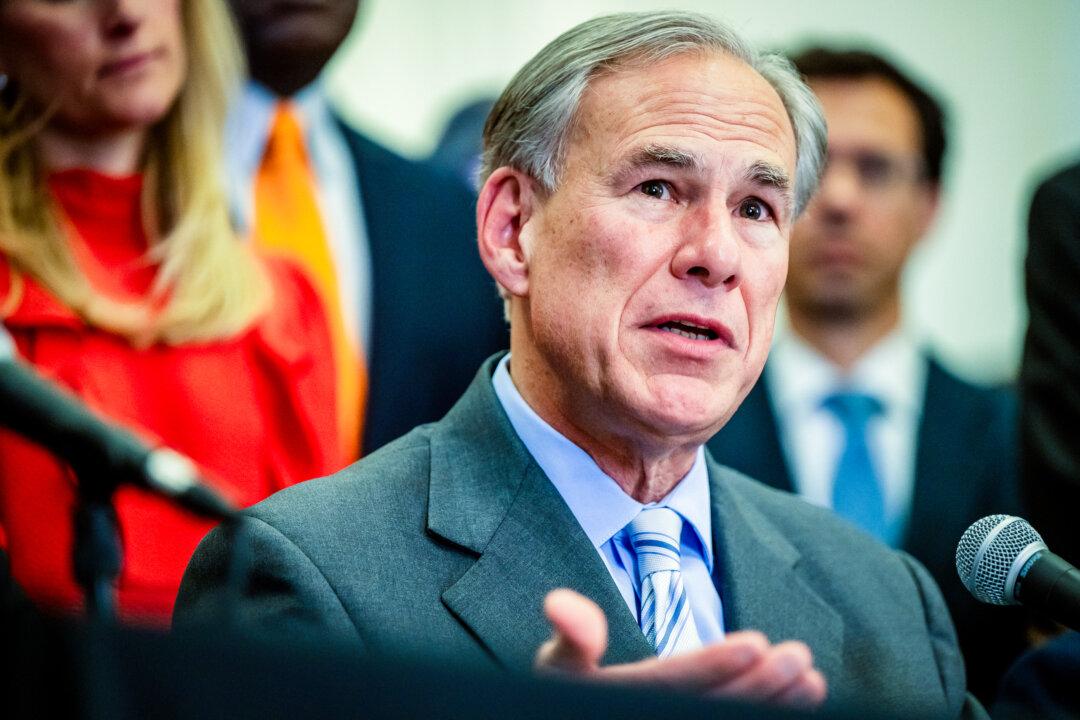Texas Gov. Greg Abbott said Monday he will continue to enforce state border policies coming after the Supreme Court temporarily blocked enforcement of an immigration law that would allow state law enforcement to arrest people they suspect are illegal immigrants.
On Monday afternoon, Supreme Court Justice Samuel Alito again halted for a third time Texas’ SB4, a law that would have allowed Texas law enforcement to arrest people suspected of being illegal immigrants. A lower court last month had ruled against the law, which was ultimately appealed to the Supreme Court.





